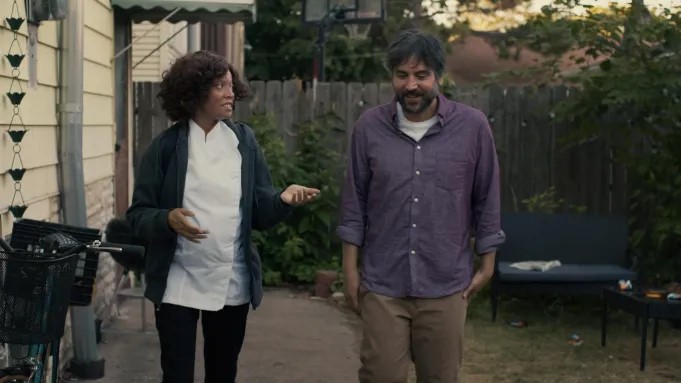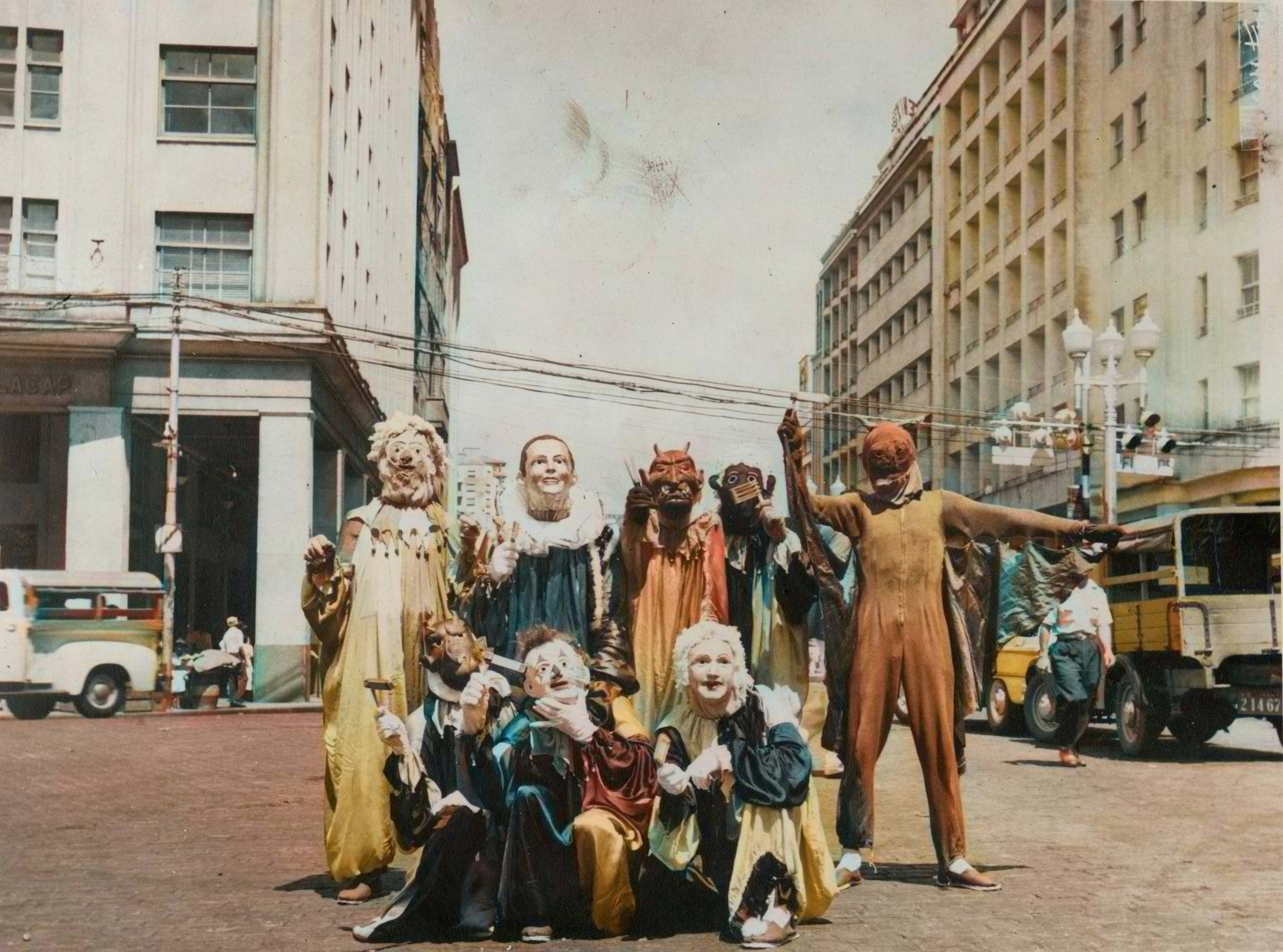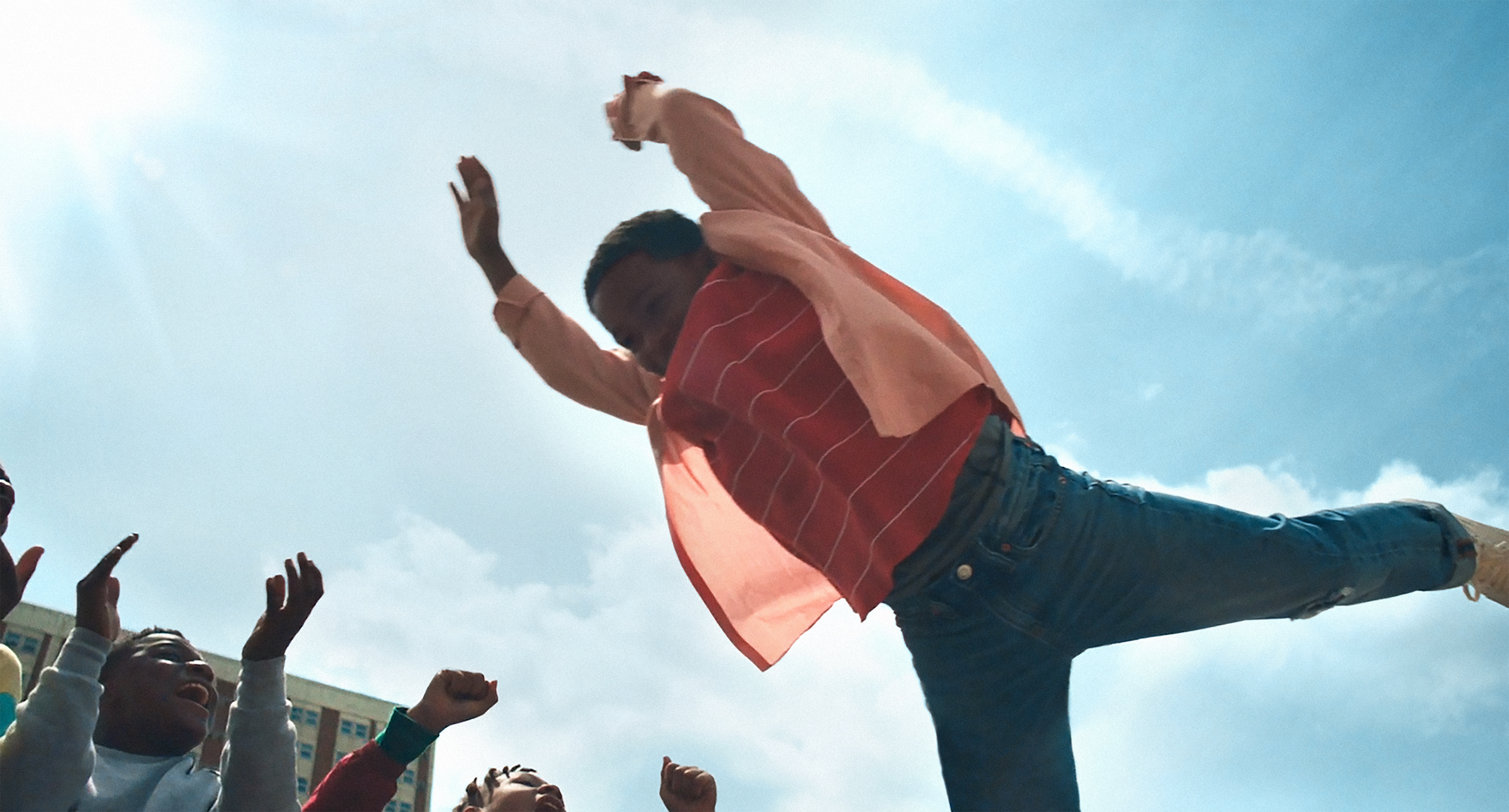Now Playing
Current DJ: Eric Wiersema
Oozing Wound Call Your Guy from Retrash (Thrill Jockey) Add to Collection
Requests? 773-DJ-SONGS or .(JavaScript must be enabled to view this email address)

by Kyle Sanders
There are the families that we're born into and the families we choose to belong to. Both have their advantages and disadvantages. A lot of the titles I've seen at the Chicago International Film Festival have provided intimate glimpses of families bound by blood and those melded together by circumstance.
The first of these titles, All Happy Families (U.S.) references the famous quote by Tolstoy that begins the film: "All happy families are alike; each unhappy family is unhappy in its own way." The unhappy family in question here is the Landry's, specifically Graham, who is an out-of-work actor constantly under the shadow of his more successful brother, Will.
As he tries to lease out the first floor of his two-flat, Graham's brother unexpectedly arrives, and with the help of his recently retired mother and gambling addict father, Graham spruces up the place in the hope his former crush will move in.
 All Happy Families
All Happy Families

by Kyle Sanders
What can I say about our current state of affairs other than that our global society has "been through a lot"? That would be putting it mildly. Political turmoil, social unrest, cultural clashes--not to mention the ongoing battles of artificial intelligence and the cyber spread of misinformation--have really put us through the wringer since...I'm not even sure when it started!
If cinema is a creative reflection of our times, then there are several titles playing at this year's Chicago International Film Festival that do a hauntingly accurate job of capturing what it feels like to be living in this era of anguish.
In Erik Gandini's documentary After Work (Sweden/Italy/Norway), the past, present, and future of labor is scrutinized based on how humans attach their worth to their work. One of humanity's most sought after goals is to have a job, and finding employment seems to always be the greatest advice anyone could offer someone. It's part of the philosophy of Carpe Diem: making the most of the present, because to do nothing is to be dead.
This might be the reason why so many people define themselves by their occupation. What they do for a living is associated with who they are, and to be without a job would mean they have nothing.
 After Work
After Work

by Kyle Sanders
If you’re a sucker for nostalgia, then it would help if you’re also a prolific filmmaker. That way, anything from your past that helped define your entire being can be the subject of your next project.
In the process, you’re also helping preserve a legacy that viewers can appreciate with what you’ve documented. And the more love and passion you put into it, the better your film will be received.
Several of the documentaries featured at this year’s Chicago International Film Festival involve a subject very personal to the filmmaker, be it family, hobby, or both. There appears a common thread between them as well: preventing the passage of time from allowing these subjects to disappear forever.
In Pictures of Ghosts (Brazil), Kleber Mendonca Filho lovingly reflects on the places of his past, all of which revolve around his love of film. From his boyhood home, where he watched his first movies (and began making them as well), to the cinemas of Recife, which provided him his first job as a teenager and a father figure of sorts from a friendly projectionist.
Filho cuts and pastes together an ode to an era of movie marquees (lovingly referred to as "timekeepers" that comment on life in the world) that no longer exists in the city where he grew up—at least outside of his memory, that is.
 Pictures of Ghosts
Pictures of Ghosts

by Kyle Sanders
A peculiar thing happened to me while attending the press screening for We Grown Now, this year’s Opening Night title at the 59th Chicago International Film Festival: A family of six (including four children who could not have been any older than five years) walked in at around the half-hour point, clumsily staking out their spot.
After about ten minutes (of which half that time was spent settling into their seats), they got up and left. Apparently, they were not there to see Minhal Baig’s Chicago-set story about a friendship between two Black boys living in the Cabrini-Green housing complex during the early 1990s, but somehow didn’t realize their mistake until after quite some time. They exited the same way as they entered—as a thorn in my side.
While I found the disruption irritating (and before you judge me), I certainly didn’t blame the children. Despite the amount of time it took for them to settle down, as well as their inability to lower their voices, it’s the parents who should’ve recognized the faux paux sooner.
Because adults should know better, correct? This is something I was taught as a child: to listen to the adults in the room because “they know better.”
In We Grown Now (U.S.), little Malik and Eric are too young to know better outside the cinder-blocked walls of their Cabrini-Green homes. There, they each live with their non-nuclear families, gathered around dinner tables in the evenings while attending school during the day.
As much as their single parents work to provide for them, Malik’s mother Delores and Eric’s father Jason are unable to prevent the violence from crawling up to their doorstep. Once it does, the two boys must confront adulterated matters regarding racism, police brutality, and death.
 We Grown Now
We Grown Now

by Kyle Sanders
I hope our CHIRP Music Film Festival (co-programmed by yours truly, no less) gave you a taste for more celebrations of cinema, because Chicago's got another heap of films for your viewing pleasure--this time spanning from around the globe.
That's right, it's time for the 59th Annual Chicago International Film Festival! With 99 feature films, 58 shorts, 19 U.S. premieres, and 1 international premiere spread out across eight venues, it might just be the biggest one yet!
It's also a special milestone for me, because this will be my tenth attended festival. I moved to Chicago in August of 2013, so this particular film festival was one of the very first citywide events I ever experienced after moving here, and I've been coming back ever since.
That first year only provided me one title to see (Italy's Salvo, which reminded me of Nicolas Winding Refn's Drive--sans the scorpion bomber jacket), but every year since, I've added more and more to my must-see list, and if I'm able to chew what I've bitten off for this year's lineup, I'll have seen over thirty films (as I'm writing this, I've already crossed off TWENTY titles)!